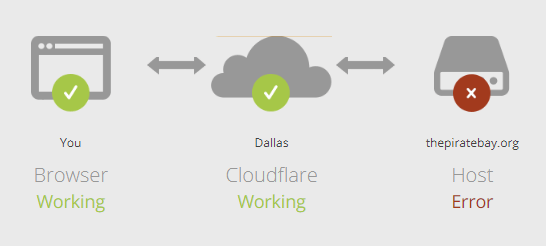Russia to Amend Copyright Law After Yandex was Forced to Remove Pirate TV Content
samedi 15 septembre 2018 à 10:28 After complaining that Russian Internet giant Yandex had failed to keep pirated versions of their content out of its search results, several major broadcasters filed a lawsuit with the Moscow City Court.
After complaining that Russian Internet giant Yandex had failed to keep pirated versions of their content out of its search results, several major broadcasters filed a lawsuit with the Moscow City Court.
Gazprom-Media outlets including TNT, TV-3, 2×2, and Super went straight for the jugular, petitioning the Court to have ISPs block Yandex’s video indexing platform. The Court granted the request and gave Yandex until August 30 to remove all of the offending content.
Initially, Yandex flat-out refused. The company said the law was being misinterpreted, claiming that current legislation states that pirate content must be removed from sites hosting it and that search engine links are not covered.
However, after announcing that it would appeal the decision of the Moscow City Court, Yandex suddenly changed its mind on removing the content. Fearing its entire platform would be blocked by ISPs, Yandex erred on the side of caution, deleting all content that may (or indeed may not) have infringed the media companies’ rights.
Early September the TV channels again filed lawsuits with the Moscow City Court, again over the appearance of links to their content appearing in search results.
“Four lawsuits were filed by Yandex. In all the lawsuits, the TV channels ask the Court to oblige the defendant to stop creating technical conditions that ensure the placement of works on the Yandex.ru website,” press secretary of the court Ulyana Solopova told Interfax.
With a decision on the matter pending (and the underlying aim of Gazprom Media to reach a settlement agreement with Yandex), soon after the Moscow City Court responded to Yandex’s original appeal against a preliminary blocking injunction.
In a blow to Yandex, the Court upheld its original ruling, meaning that the decision to remove the content before an ISP ban was put in place was well-timed by the search company.
However, it now appears that the confusion over the requirements of the law will see the government step in to offer a solution. According to Russian Deputy Prime Minister Maxim Akimov, the country’s anti-piracy legislation needs to be “improved” following the Yandex/Gazprom Media dispute.
“Regarding the regulation of data in terms of copyright and intellectual property rights, of course, the improvement of legislation, including anti-piracy, is exactly necessary,” Akimov told Interfax.
“By the end of the year we will try to present the necessary amendments to the Duma, which will allow us to more clearly define the rights of the parties,” he said.
Akimov said that the amendments will be the product of negotiations between the Federal Antimonopoly Service, intellectual property bodies, and the Ministry of Economic Development and Business.
It is currently unclear which direction the talks will go and whether any changes will favor Yandex’s perception of the law or the Moscow City Court’s interpretation.
Source: TF, for the latest info on copyright, file-sharing, torrent sites and more. We also have VPN reviews, discounts, offers and coupons.
 More than two weeks ago we
More than two weeks ago we 




